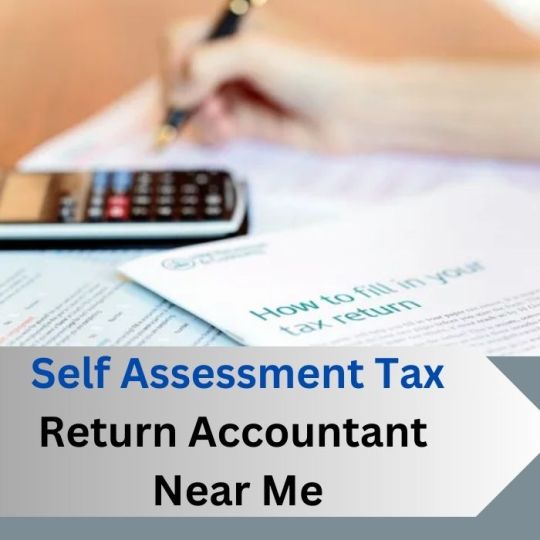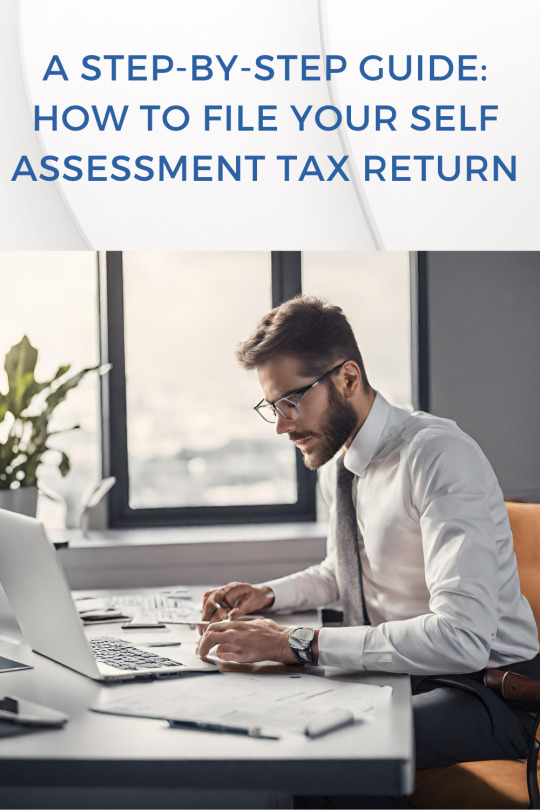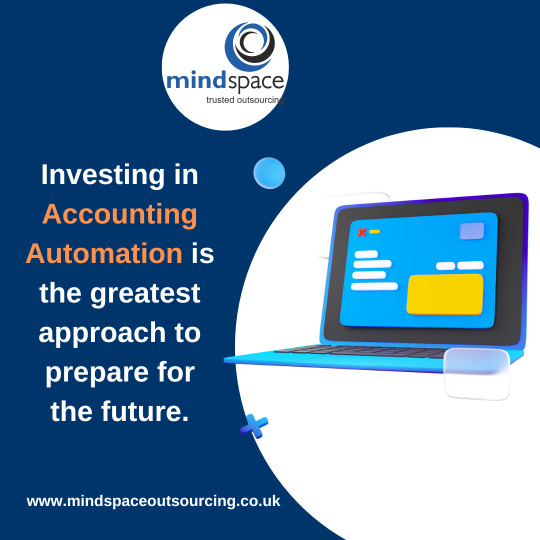#self assessment tax return accountant
Text
5 Good Reasons to Hire Expert And Reputed Tax Consultants
Are you an entrepreneur and run your own business? In that case, you must be the one who is the Jack of all trades. However, tackling every business aspect is never easy. Especially when it comes to tax filing one needs to be very conscious. However, looking into this critical matter is extremely time consuming. To save some, you can look for a professional Self Assessment Tax return accountant nearby you can help and guide you with all their knowledge and expertise.

You must be aware of the fact that hiring an expert professional would never put your expectations down. There are several good reasons to hire them. Some of these are:
They Provide Expert Advice: As they are highly qualified and have years of experience, they naturally have adequate knowledge of every financial law, which enables them to provide you with concrete advice.
Helps You to Save Both Time and Money: To grow your connections and build your business effectively, hiring experts is very important for they solve issues faster which reduces the cost too.
Guides You in Tax Consulting: They are experts in dealing with Tax-Related Issues and shoulder the tax filing responsibility.
Assists You in Managing Your Business Finances Efficiently: Not only tax, but they also look after audits and other accounts-related matters.
Reduces Your Stress by Providing Assistance: Looking after the Finance Department is one of the major jobs in every organisation. Taking professional assistance in this regard reduces a lot of stress and burden.
The Final Say:
Hence, to handle your business finances better, contact the Professional Self Assessment Tax Return Accountant nearby. They are the experts and will help you to boost your business and enhance productivity. Schedule an appointment today to learn how they can help your business to grow.
1 note
·
View note
Text
Efj Consulting: Your Trusted Partner for Self Assessment Tax Returns
A changing tax environment requires self-assessment of tax returns for compliance and penalty avoidance. You should record and remove your income whether you’re self-employed, married, or have many sources. You can trust their accountants to file self assessment tax returns on time. Efj Consulting is aware of the tax, compliance, and financial planning difficulties that Bexleyheath residents and companies must deal with. Efj’s experienced advisors and accountants in Bexleyheath provide proactive advice and personalized service to help you reach your financial goals.
Explore our other services:
Accountants in Welling
VAT Returns in the UK
Bookkeeping and VAT
Self-Assessment Tax Returns
Formation and Company Secretarial
Corporation Tax Returns
Annual Financial Accounts
Construction Industry Scheme
Management Accounting London
Accountants in Bexleyheath
#bookkeeping and vat#construction industry scheme#cis monthly return uk#corporation tax return#annual financial accounts#self assessment tax returns#accountants in welling#vat returns in uk#formation and company secretarial#vat returns uk
0 notes
Text
0 notes
Text
HMRC Self Assessment & Tax Return
#hmrc#self assessment#tax services#tax relief#tax returns#tax accountant#taxes#tax advisory#london#finance#accounting#uk
0 notes
Text
Expert Self-Assessment Tax Return Accountants!
Are you searching for Self-Assessment Tax Return Accountants? Our team of expert accountants is dedicated to simplifying the process, ensuring accuracy, and maximizing your returns. Trust us to make your tax journey stress-free and financially rewarding!
0 notes
Text
A Step-by-Step Guide: How to File Your Self Assessment Tax Return

Filing your self assessment tax return can be a daunting task, but it is a necessary one if you are self-employed or receive income from other sources. In this comprehensive guide, we will walk you through the process of filing your self assessment tax return, step by step. By the end of this article, you will have a clear understanding of what is required and how to avoid common mistakes.
Who needs to file a self assessment tax return?
Not everyone is required to file a self assessment tax return. If you are an employee and your income is solely from your salary, taxes are usually deducted automatically through the PAYE (Pay As You Earn) system. However, if you are self-employed, a sole trader, a partner in a partnership, a company director, or have income from other sources such as rental properties or investments, you will need to file a self assessment tax return.
Filing a self assessment tax return allows you to declare your income and expenses, claim any tax deductions or reliefs you may be entitled to, and calculate the amount of tax you owe. It is important to determine whether you fall under the category of individuals who need to file a self assessment tax return to avoid any penalties or fines.
Benefits of filing a self assessment tax return
Filing a self assessment tax return has several benefits, even if you are not required to do so. Firstly, it allows you to ensure that you are paying the correct amount of tax based on your income and expenses. By accurately reporting your financial details, you can avoid overpaying or underpaying taxes.
Secondly, filing a self assessment tax return provides an opportunity to claim tax deductions and reliefs. If you are eligible for any tax breaks, such as business expenses or charitable donations, you can offset these against your taxable income, potentially reducing your overall tax liability.
Additionally, filing a self assessment tax return can help you build a comprehensive financial record. This can be useful for various purposes, such as applying for loans or mortgages, as it demonstrates your income and financial stability.
Important dates and deadlines for self assessment tax returns
Before diving into the process of filing your self assessment tax return, it is crucial to be aware of the important dates and deadlines. The tax year in the United Kingdom runs from April 6th to April 5th of the following year. Here are some key dates to keep in mind:
October 5th: Deadline for registering for self assessment if you are self-employed or have other untaxed income.
October 31st: Deadline for filing a paper tax return.
January 31st: Final deadline for filing your self assessment tax return online and making any tax payments.
It is advisable to start preparing your tax return well in advance to ensure you have enough time to gather all the necessary documents and information. Waiting until the last minute can lead to unnecessary stress and potential mistakes.
Gathering the necessary documents and information
Before you begin the process of filing your self assessment tax return, it is essential to gather all the necessary documents and information. This will help streamline the process and ensure you have accurate data to report on your tax return. Here are some key documents and information you may need:
Personal information: Your National Insurance number, Unique Taxpayer Reference (UTR), and contact details.
Income details: Details of all your sources of income, including self-employment income, employment income, rental income, dividends, and interest.
Expense records: Receipts and records of any allowable business expenses, such as office supplies, travel expenses, and professional fees.
Pensions and benefits: Details of any pensions, state benefits, or other taxable income.
Tax documents: P60 forms from your employer and any other relevant tax documents, such as P45 or P11D.
By gathering these documents and information beforehand, you can ensure a smooth and accurate filing process.
Step 1: Registering for self assessment
The first step in filing your self assessment tax return is to register for self assessment with HM Revenue and Customs (HMRC). If you are self-employed or have other untaxed income, you are required to register by October 5th of the tax year following the year in which you became liable for self assessment.
To register, you will need to visit the HMRC website and create a Government Gateway account. Once you have registered, you will receive a Unique Taxpayer Reference (UTR) and be able to access the online self assessment system. It is important to register as soon as possible to avoid any penalties for late registration.
Step 2: Calculating your income and expenses
Before completing your self assessment tax return, you need to calculate your income and expenses for the tax year. This involves gathering all the relevant financial information and determining your taxable income.
Start by compiling all your income sources, including self-employment income, employment income, rental income, dividends, and interest. Ensure you have accurate records and supporting documentation for each source of income.
Next, deduct any allowable business expenses from your income. These may include office rent, utilities, travel expenses, professional fees, and other costs directly related to your business. Keep in mind that not all expenses are allowable, so it is important to refer to HMRC guidelines or consult a tax professional if you are unsure.
Once you have calculated your taxable income, you can determine the amount of tax you owe. This can be done using the tax rates and allowances applicable to your income bracket. HMRC provides online calculators and resources to help you with this process.
Step 3: Completing the self assessment tax return form
Now that you have gathered all the necessary documents and calculated your income and expenses, it is time to complete the self assessment tax return form. HMRC provides an online system called "Self Assessment" where you can complete and submit your tax return electronically.
The online form is divided into sections, each corresponding to different types of income and expenses. It is important to complete each section accurately and provide all the required information. The form will guide you through the process, asking relevant questions based on your individual circumstances.
As you complete each section, double-check your entries for accuracy and ensure you have included all the necessary details. Mistakes or omissions can lead to delays in processing your tax return or even penalties for incorrect filing.
Step 4: Submitting your self assessment tax return
Once you have completed the self assessment tax return form, it is time to submit it to HMRC. If you are using the online system, you can submit your tax return electronically. The system will provide a confirmation once your tax return has been successfully submitted.
If you prefer to file a paper tax return, you must do so by October 31st. However, it is recommended to file your tax return online as it is faster, more secure, and provides instant confirmation of receipt.
After submitting your tax return, HMRC will calculate the amount of tax you owe based on the information provided. You will receive a tax calculation (also known as a "tax calculation letter") outlining the amount due. It is important to review this calculation to ensure its accuracy.
Common mistakes to avoid when filing your self assessment tax return
Filing a self assessment tax return can be complex, and there are several common mistakes that individuals make. By being aware of these mistakes, you can avoid them and ensure a smooth filing process. Here are some common mistakes to avoid:
Incorrectly reporting income: Ensure you include all your sources of income and report them accurately. Failure to do so can result in penalties or fines.
Forgetting to claim tax deductions: Keep track of your business expenses and other allowable deductions to reduce your overall tax liability. Neglecting to claim these deductions can lead to paying more tax than necessary.
Missing filing deadlines: Be aware of the important dates and deadlines for filing your self assessment tax return. Failing to meet these deadlines can result in penalties and interest charges.
Incomplete or inaccurate records: Maintain accurate and up-to-date records of your income, expenses, and other financial details. This will help ensure the accuracy of your tax return and simplify the filing process.
By avoiding these common mistakes, you can save time, money, and stress when filing your self assessment tax return.
Understanding the penalties for late or incorrect filing
Filing your self assessment tax return late or with incorrect information can result in penalties from HMRC. It is important to understand the consequences of non-compliance and take steps to avoid any penalties. Here are some key penalties to be aware of:
Late filing penalty: If you fail to file your self assessment tax return by the deadline, you will incur an initial penalty of £100. Additional penalties may apply for further delays.
Late payment penalty: If you do not pay your tax bill by the deadline, you will be charged interest on the outstanding amount. The interest rate is currently set at 2.6%.
Incorrect filing penalty: If HMRC discovers that your tax return contains errors or inaccuracies, you may be subject to penalties based on the severity of the errors. Deliberate attempts to evade tax can result in higher penalties and potential criminal charges.
It is important to take these penalties seriously and ensure you file your self assessment tax return correctly and on time. If you require assistance or are unsure about any aspect of the filing process, it is advisable to seek professional advice.
Getting help with filing your self assessment tax return
Filing a self assessment tax return can be a complex task, especially if you have multiple sources of income or complicated financial arrangements. If you find yourself overwhelmed or unsure about any aspect of the filing process, it is advisable to seek help from a tax professional.
A tax professional can provide expert guidance, help you navigate the complexities of self assessment, and ensure you comply with all relevant tax laws and regulations. They can also assist with tax planning, identify potential deductions or reliefs, and help you minimize your tax liability.
By seeking professional help, you can have peace of mind knowing that your self assessment tax return is accurate, complete, and filed on time.
Conclusion
Filing your self assessment tax return does not have to be a daunting task. By following this step-by-step guide, you can navigate the process with confidence and avoid common mistakes. Remember to gather all the necessary documents, register for self assessment, calculate your income and expenses, complete the tax return form accurately, and submit it to HMRC on time.
Understanding the important dates and deadlines, as well as the potential penalties for late or incorrect filing, is crucial. By staying organized, seeking professional help if needed, and taking the necessary steps to comply with tax regulations, you can ensure a smooth and hassle-free self assessment tax return filing process.
So, don't wait until the last minute. Start early and file your self assessment tax return with ease. By doing so, you can take advantage of the benefits of early tax filing and avoid unnecessary stress.
1 note
·
View note
Text
Benefits To A Business In Using An Online Bookkeeping Service UK

On-site Bookkeeping Services: On-site bookkeeping services London are typically provided by a team of trained professionals who work directly with a business's accounting department. They support tasks such as preparing financial statements, managing payroll, and reconciling bank accounts.
#bookkeeping services uk#bookkeeping services london#bookkeeping london#vat return services#vat return online#small business accounting services#small business tax accountant#Self-assessment tax return
0 notes
Text
Best Accountant for Landlord
Do you need help with your landlord-tenant income tax relations? We offer accountant for landlords who also want to keep their accounting records up to date. We'll take care of all the bookkeeping, filing, and reporting tasks that are too time-consuming or tedious for busy landlords while making sure they comply with all IRS regulations. Our services are designed to free up time so you can focus on running your business and providing great service to your tenants.
#Accountant for Landlord#Best Accountant for Landlord#Buy to let accountant#Capital gains tax on shares#Capital gains tax on property#Self assessment tax return
0 notes
Text
PAYROLL SERVICES INCLUDING OUTSOURCED PAYROLL MANAGEMENT
It's crucial to manage payroll in a business. It entails overseeing a business's finances, human resources, and personnel. If payroll administration services are offered, there is a solid working relationship between the company and the employees. Employees are motivated to work more in their given tasks by the company's strong financial situation.
Any business, including both startups and large corporations, needs a professional payroll administration system solution. The current shifting corporate environment makes it difficult to provide efficient management services. Here are a few of the most crucial tactics for maintaining the efficiency of your payroll services.
A paperless payroll system should be developed:
The digital era has several benefits, including database management systems and computerised transactions. Large data sets are challenging to manually manage, which increases the likelihood of errors. So automatic payroll transfers are a necessity for reliable payroll services. In addition to these benefits, an electronic payroll system safeguards company data and facilitates calculations and compensation payments.
Including a variety of payment options: One way to guarantee efficient payroll administration services is to have a standard pay schedule for all of your employees. You may have encountered companies that pay their employees according on whether they are contract, long-term, or freelance workers. Payroll administration is simplified and error-free when all employees in a company agree on a single pay schedule.
Install the required software:
Making appropriate payroll decisions requires the use of digital tools. The choice of the proper software for your company's needs and budget, nevertheless, can present a problem. There are several software options available, or you may develop software that is simple to integrate into the payroll administration process at your business. You may be sure that this technological solution will satisfy all of your financial needs.
Support for payroll software: You must make sure that your accounting system and your payroll administration system, such as SAP, are compatible. The two systems need to work together.
Utilize the most recent facts you have at your disposal:
Payroll services may only be offered if you are knowledgeable with the most recent laws and rules pertaining to employees, gratuity standards, EPF, medical reimbursement, and other essential salary components. Your employees will be happy, and you can determine their pay accurately.
paid for by third parties
A sound general principle for building an extensive payroll management procedure is to use outsourced payroll services. Yes, you're right. Due to Covid-19's growth, payroll outsourcing has become the norm in recent years. By outsourcing payroll services, you can save time, money, and even lessen your workload and stress. These companies that offer outsourced payroll services make use of both technological and financial know-how.

#bookkeeping services for business#accountancy and bookkeeping services#self assessment tax return#payroll outsourcing services
0 notes
Text
WASHINGTON – Hunter Biden, the president’s son, was indicted on charges he failed to pay his income taxes, Justice Department special counsel David Weiss announced Thursday.
The announcement came months after a plea deal over tax and gun charges collapsed. Under the agreement, which a federal judge rejected, Hunter Biden was set to plead guilty to two misdemeanor counts of failing to pay taxes in 2017 and 2018.
Biden is charged in a California federal court with three felony tax offenses and six misdemeanors. He engaged in a scheme in which he failed to pay at least $1.4 million in self-assessed taxes from 2016 through 2019, and also evaded tax assessment for 2018 when he filed false returns, according to the indictment.
From 2016 to 2020, Biden spent money "on drugs, escorts and girlfriends, luxury hotels and rental properties, exotic cars, clothing, and other items of a personal nature, in short, everything but his taxes," according to the indictment.
Separately, Weiss has charged Hunter Biden in Delaware with three federal gun charges, basically alleging he lied about using drugs when he bought a revolver in 2018. Biden pleaded not guilty to the charges Oct. 3.
"Based on the facts and the law, if Hunter’s last name was anything other than Biden, the charges in Delaware, and now California, would not have been brought," said Abbe Lowell, an attorney for Hunter Biden, in a statement.
"Now, after five years of investigating with no new evidence -- and two years after Hunter paid his taxes in full -- the U.S. Attorney has piled on nine new charges when he had agreed just months ago to resolve this matter with a pair of misdemeanors," Lowell said.
Biden faces a maximum penalty of 17 years in prison if convicted on the tax charges, the Justice Department said in a press release. It noted that actual sentences for federal crimes are typically less than maximum penalties.
Congressman Jason Smith, who heads the House Ways and Means Committee, said in a statement that the new charges further confirm the need for Congress to conduct an impeachment inquiry of Joe Biden "in order to uncover all the facts." The charges address years in which Hunter Biden earned millions of dollars by selling access to a family brand that was built on Joe Biden's political career, he said.
What are the tax charges?
While failing to pay his taxes, Biden allegedly spent millions on an extravagant lifestyle. In 2018, for example, he made about $383,000 in payments to women and spent about $151,00 on clothes and accessories, according to the charges.
Biden faces two felony charges of filing a false return and one felony charge of tax evasion. The six misdemeanor counts are for allegedly failing to file returns or pay his taxes when required.
Prosecutors have said Hunter Biden took in $2.4 million in income in 2017 and $2.1 in 2018 through Ukrainian energy firm Burisma, a Chinese-development firm, as well as domestic business interests and legal services.
Leo Wise, an assistant U.S. attorney, said at a July court hearing that an accountant prepared Biden's taxes both of those years, but his corporate and personal taxes were not paid. During this period, Hunter Biden made large cash withdrawals and covered other expenses like car payments on a Porsche, Wise said.
Hunter Biden told the court a "third party" paid the back taxes along with interest and fees pursuant to a personal loan he has not begun to repay.
Why did the judge reject the plea agreement?
Prosecutors had recommended probation for the two misdemeanor tax charges in the plea agreement, despite each carrying a maximum sentence of 12 months in prison. The agreement over the gun charge anticipated a pretrial diversion program that would wipe the charge off Biden’s record if he complied.
House Republicans called the agreement a “sweetheart deal” for lack of jail time.
U.S. District Judge Maryellen Noreika rejected the deal because of a dispute between prosecutors and defense lawyers over what it meant. Biden's lawyers argued that he would be protected from prosecution in future cases, but prosecutors denied that.
7 notes
·
View notes
Text
A Complete Guide to Documents Required for Home Loan
Are you planning to buy your dream home but feeling overwhelmed with the amount of paperwork involved in getting a home loan? Worry not, because we have got you covered! In this complete guide, we will walk you through all the documents needed for a home loan application process. From income proof to property details, our checklist will ensure that you are well-prepared and confident while applying for a home loan. So, sit back and relax as we take you on an informative journey towards owning your dream abode!

Introduction to Home Loan Documents
When you apply for a home loan, you will be required to provide a few documents to the lender. These documents are necessary to process your loan application and determine whether you are eligible for a home loan.
The most important document is your income tax returns. This document will be used to verify your income and employment history. Lenders will also require you to provide recent salary slips and Form 16.
You will also need to provide documentation of your assets and liabilities. This includes bank statements, investment account statements, and records of any outstanding debts. Lenders use this information to assess your financial stability and ability to repay a home loan.
Lastly, you will need to sign a loan application and disclosures. These documents state the terms of the loan and your rights as a borrower. Be sure to read these documents carefully before signing them.
Types of Home Loans
There are four main types of home loans: fixed rate, adjustable rate, government-backed, and jumbo.
Fixed-rate home loans have an interest rate that stays the same for the entire life of the loan. This makes budgeting easy because you know exactly how much your mortgage payment will be each month. Adjustable-rate mortgages (ARMs) have an interest rate that can change over time. The initial interest rate is usually lower than a fixed-rate mortgage, but it can increase or decrease depending on market conditions. Government-backed loans are guaranteed by the federal government and typically have lower interest rates and more favourable terms than conventional loans. Jumbo loans are for borrowers who need a loan amount that exceeds the limit for conforming loans.
Documents Required for Home Loan
The following is a list of documents that you will need to provide:
- Your most recent payslip
- Your last 3 months of bank statements
- Your tax returns for the last 2 years
- Proof of any other income such as investments or rental properties
- Your ID (driver's license, passport etc)
- Proof of address (utility bill, lease agreement, etc.)
- Your asset statement which lists all your property and savings
- Your liabilities statement which lists all your debts
- If you are self-employed, you will also need to provide business financials such as income statements, balance sheets and cash flow statements
Without this documentation, it will be very difficult to get approved for a home loan. So, if you're planning on applying for a home loan, make sure that you have all your property and asset documentation in order!
Tips for Preparing Home Loan Documentation
Here are some tips to help you get started on the documentation process:
1. Gather all your personal identification, including your driver's license, passport, and birth certificate. You will also need to provide proof of your current address.
2. Collect financial documents such as bank statements, investment account statements, and tax returns. These will be used to verify your income and assets.
3. If you are self-employed, you will need to provide additional documentation such as business licenses and contracts.
4. Make sure all your documents are up-to-date and accurate. Incorrect or outdated information could delay the approval of your loan or result in a higher interest rate.
5. Once you have gathered all your documentation, make copies, and keep them in a safe place. You will need to provide these originals or copies when you apply for a home loan.
How to Organise the Home Loan Documentation?
Organising the home loan documentation can be a daunting task, but it is important to do to ensure a smooth and stress-free loan process. Below are some tips on how to organize home loan documentation:
1. Gather all documents - This includes your identification, income statements, asset statements, and any other required paperwork.
2. Create a filing system - This can be either physical or electronic, but it should be organized in a way that makes sense to you.
3. Keep track of deadlines - Make sure to note when each document is due and submit them in a timely manner.
4. Communicate with your loan officer - Stay in touch with your loan officer throughout the process and let them know if you have any questions or concerns.
Benefits of Having Your Home Loan Documentation in Order
When you're ready to buy a home, it's important to have your documentation in order. This will help the loan process go more smoothly and can potentially save you money.
Your credit score is one of the most important factors in getting a home loan. By ordering your credit report and score in advance, you can identify any potential red flags and take steps to improve your credit before applying for a loan.
It's also a good idea to have a solid understanding of your financial situation before starting the loan application process. This will help them determine how much of a loan you can afford.
Finally, having all your documentation in order shows that you're serious about buying a home and are prepared to move forward with the loan process. It may even give you an edge over other buyers who haven't taken the time to get their paperwork in order.
Conclusion -
Applying for a home loan can be an intimidating and overwhelming process. We hope that this guide has given you a better understanding of the documents required for your home loan application so that you can prepare them in advance and avoid any delays or unnecessary complications during the process. With all the paperwork taken care of, you'll be able to focus on finding the perfect home to invest in!
When you apply for a home loan, you will be required to provide a few documents to the lender. These documents are necessary to process your loan application and determine whether you are eligible for a home loan.
The most important document is your income tax return. This document will be used to verify your income and employment history. Lenders will also require you to provide recent pay stubs and W-2 forms.
You will also need to provide documentation of your assets and liabilities. This includes bank statements, investment account statements, and records of any outstanding debts. Lenders use this information to assess your financial stability and ability to repay a home loan.
Lastly, you will need to sign a loan application and disclosures. These documents state the terms of the loan and your rights as a borrower. Be sure to read these documents carefully before signing them.
2 notes
·
View notes
Text
MAXIMIZING RETURNS, MINIMIZING STRESS: A HOLISTIC APPROACH TO CORPORATION TAX
Companies’ ongoing goals in the fast-paced, constantly-evolving world of business are to maximize returns and reduce stress. Corporation tax returns are one area that is crucial to reaching these objectives. For many organizations, this elaborate and convoluted structure can be too much to handle. However, businesses can easily manage the tax landscape and benefit from it if they take a comprehensive approach. A fundamental principle emphasized by EFJ Consulting is the need for proper tax planning. An analysis of a formation and company secretarial situation can help develop a strategy that is tailored to the particular needs of the business. Examining investments, losses, and profits is part of this. This all-encompassing strategy makes sure that every chance to lower tax obligations is investigated and taken advantage of, resulting in higher returns.
Explore our other services:
Accountants in Welling
VAT Returns in the UK
Bookkeeping and VAT
Self-Assessment Tax Returns
Formation and Company Secretarial
Corporation Tax Returns
Annual Financial Accounts
Construction Industry Scheme
Management Accounting London
Accountants in Bexleyheath
#bookkeeping and vat#construction industry scheme#cis monthly return uk#corporation tax return#vat returns in uk#annual financial accounts#accountants in welling#formation and company secretarial#self assessment tax returns#vat returns uk
0 notes
Text
Brisbane Taxation Services
Australia’s taxation laws are complex and ever-changing. As a result, many businesses hire accounting professionals to help them manage their taxes and comply with regulations.
Choosing the right accounting service is crucial for your business. A quality accounting service can save you time and money. It can also prevent costly mistakes.
Experience
Whether you’re running a small business or you have an income tax refund, the right brisbane taxation services accounting and bookkeeping services can help you stay compliant with Australian tax regulations. These professionals are experienced in allencompassing tax-related services, including filing, compliance, assessment, and advisory. They can provide the guidance and support you need to maximise your return.

If you are a US expat living in Australia, it’s essential to find a tax advisor who understands both countries’ laws. Choosing a firm that specialises in this area will ensure you don’t get double taxed on income and assets. USTaxCentral has a team of experts who can assist you with all of your cross-border needs.
A professional tax accountant will save you time and money. They’ll make sure you file your return correctly so that you receive the maximum possible tax refund. Their experience will also help you prepare for future tax changes and avoid penalties. They can also help you with your investment property tax and business taxes.
Personality
The staff at brisbane taxation services are friendly and approachable, with an emphasis on client relationships. They also have a strong focus on reducing your tax burden and maximising your deductions. They can provide advice on a range of personal and business tax issues, including property investment, payroll taxes, and self-employment. They can even help you plan your investments and develop a successful retirement strategy.
Their clients include prominent privately owned businesses, high growth companies, innovative start-ups, and reputable not-for-profit organisations. They also advise Australian expats living overseas, or preparing to return home. They have a deep understanding of international taxation issues, and can offer comprehensive advice on all aspects of Australian and foreign tax law.
Some of the top Brisbane tax accountants have quick response times and guarantee on time delivery of services. Maree’s Mobile Bookkeeping, BOSS Bookkeeping & Taxation, and Link Advisors are among the fastest. These Brisbane-based tax accountants are also insured and can handle complex tax issues.
Cost
Filing taxes can be stressful and time-consuming, but a qualified tax accountant can ease your end-of-financial-year anxiety. They can also help you maximise your tax refund by ensuring that you claim all eligible deductions. However, their fees vary depending on your location and the type of service you require.
On average, it costs $100 to $400 for a personal tax return in Australia. Business tax returns are more expensive. The cost of an accountant can increase if you need a full audit or a complex financial report.
Whether you’re a small or medium business owner, an experienced accountant can guide you on the best taxation strategies for your business. In addition to taxation services, they can also assist with payroll management and bookkeeping. Their expertise can help you stay compliant with the Australian Taxation Office and avoid penalties. They can also advise you on effective business management strategies. They can also prepare and lodge your business tax returns for you.
Availability
ATS business advisor Aspley provides world class tax preparation, filing, and support to help you save money or get the highest possible refund. They offer unlimited year-round advice and support, as well as a free initial consultation. They also have a full range of online services including Single Touch Payroll, business activity statements (BAS), reports, and other forms.
Whether you’re an individual or a business owner, it’s important to file your taxes on time. Not doing so can result in costly fines and penalties. However, dealing with your own taxes can be a daunting task, especially for those who are not familiar with the tax laws.
If you need professional tax assistance, you can turn to Boss Taxation for all your taxation needs. They provide expert, accurate end-to-end services to minimize your tax liabilities and keep you compliant. They can even handle your investment property tax returns, which can be a big relief for you. Moreover, they are open year round with day and night appointments available.
0 notes
Text
Self Assessment Tax Return Accountants
Are you looking for Self Assessment Tax Return Accountants? At Mysimplytax, we understand that tackling your self-assessment tax return can be a daunting task. That's why we're here to simplify the process and ensure that your tax affairs are managed efficiently, leaving you with peace of mind and more time to focus on what matters most. For more info visit us.
0 notes
Text
The Essentials of Small Business Tax Compliance: Navigating Tax Regulations, Deadlines, and Deductions

Tax compliance is a fundamental and complex aspect of managing any small business in the UK. Ensuring legal compliance, accurate reporting, and timely payments are critical to maintaining a solid reputation, avoiding penalties, and maximising your bottom line. As your small business grows and evolves, navigating the intricate tax landscape becomes increasingly demanding, requiring a well-informed understanding of regulations, deadlines, and deductions.
At Spartan Accounting Group Ltd, we're keenly aware of the unique challenges faced by small business owners in understanding and meeting their tax obligations. As specialists in small business accounting, we have the knowledge and expertise to help you comply with tax regulations, stay up to date with tax deadlines, and wisely utilise tax deductions to increase financial efficiency.
We present to you this roadmap to small business tax compliance in the UK, which explores essential topics such as corporation tax, value-added tax (VAT), PAYE/National Insurance contributions, self-assessment, and tax penalties. As each of these subjects plays a crucial role in successful tax management, having an in-depth grasp of these areas will empower you to make informed decisions and ensure your business remains legally compliant.
Additionally, we will delve into practical strategies that small business owners should consider implementing to ease the tax compliance process. These strategies will include effective record-keeping tips, explanations of the various tax reliefs available to small businesses, and discussions on the benefits of outsourcing tax compliance and accounting tasks to professionals.
So, keep reading and embark on your journey to achieving small business tax compliance mastery with the insights and guidance we've provided in this informative guide.
Navigating the Tax Landscape: Understanding Key Small Business Tax Obligations
Understanding the various tax obligations relevant to your small business is the first step towards ensuring compliance. The following key areas require your attention and diligent management:
1. Corporation Tax – UK-based businesses are obliged to pay corporation tax on their profits. Owners must register their business for corporation tax, maintain accurate records, prepare financial reports and file tax returns with HM Revenue and Customs (HMRC).
2. Value-Added Tax (VAT) – If your business's annual VAT-taxable turnover exceeds the set threshold, you must register for VAT. VAT compliance entails charging the correct VAT on your products or services, submitting regular VAT returns, and paying any VAT due promptly.
3. PAYE and National Insurance Contributions – Employers must deduct income tax and employee National Insurance contributions from employees' wages through the Pay As You Earn (PAYE) system. Additionally, employers must pay employers National Insurance contributions to employees' salaries.
4. Self-Assessment – Sole traders, partnerships, and company directors are required to submit a self-assessment tax return annually, reporting their business income and expenses and paying income tax and National Insurance contributions accordingly.
Effective Record-Keeping Tips for Small Business Tax Compliance
Accurate and accessible financial records enable you to easily manage tax obligations and quickly address any discrepancies or queries. Adopt these essential record-keeping practices:
1. Digitise Your Records – Digital record-keeping systems offer improved accuracy, security, and accessibility compared to traditional paper-based methods. Cloud-based accounting software may prove invaluable in this regard.
2. Retain All Financial Documents – Ensure you keep all documentation relating to income, expenses, VAT, and other tax-related transactions for at least six years to meet HMRC requirements.
3. Consistently Update Your Records – Regularly updating your financial records will foster informed decision-making, reduce the risk of errors in reporting, and facilitate seamless tax compliance.
Accelerating Tax Compliance: Small Business Tax Reliefs and Deductions
Maximising tax reliefs and deductions can contribute significantly to your business's financial efficiency. Some noteworthy reliefs and deductions include:
1. Annual Investment Allowance (AIA) – The AIA allows you to deduct the cost of certain business assets, such as machinery and equipment, from your taxable profits.
2. Research and Development (R&D) Tax Credits – Businesses engaged in innovative R&D projects may be eligible for these tax credits, resulting in valuable financial support and reduced tax liability.
3. Employment Allowance – Small businesses may qualify for Employment Allowance, offsetting a portion of their employer National Insurance contributions.
Outsourcing Tax Compliance: Reaping the Benefits of Professional Expertise
Handling tax compliance internally can be time-consuming and stressful for small business owners. Instead, consider the advantages of outsourcing these tasks to professional service providers:
1. Access to Expertise – By partnering with an accountancy firm specialising in small business accounting, you'll tap into a wealth of knowledge and practical tax experience, ensuring your business remains compliant.
2. Time and Resource Savings – Free up your valuable resources and time by delegating tax compliance responsibilities to professionals. This enables you to focus on your core business activities that generate growth and revenue.
3. Customised Service – Professional accounting services can be tailored to suit your specific needs and requirements, resulting in a bespoke tax compliance solution that aligns with your business objectives.
Conclusion
Achieving full compliance with all small business tax obligations is a core aspect of successful financial management. By understanding key tax responsibilities, adopting effective record-keeping practices, making use of tax reliefs and deductions, and partnering with professional accounting services, you'll be well-equipped to ensure your business remains legally compliant and securely positioned for ongoing growth and financial stability.
Elevate your small business tax compliance with expert accounting services in London and personalised assistance tailored to your unique requirements. Get in touch with Spartan Accounting Group Ltd, your dedicated partner in small business accounting and tax management, and gain the support of a team committed to the financial success of your company. Together, we'll navigate the complexities of the tax landscape, fostering operational efficiency and long-term business prosperity.
Read the full article
0 notes